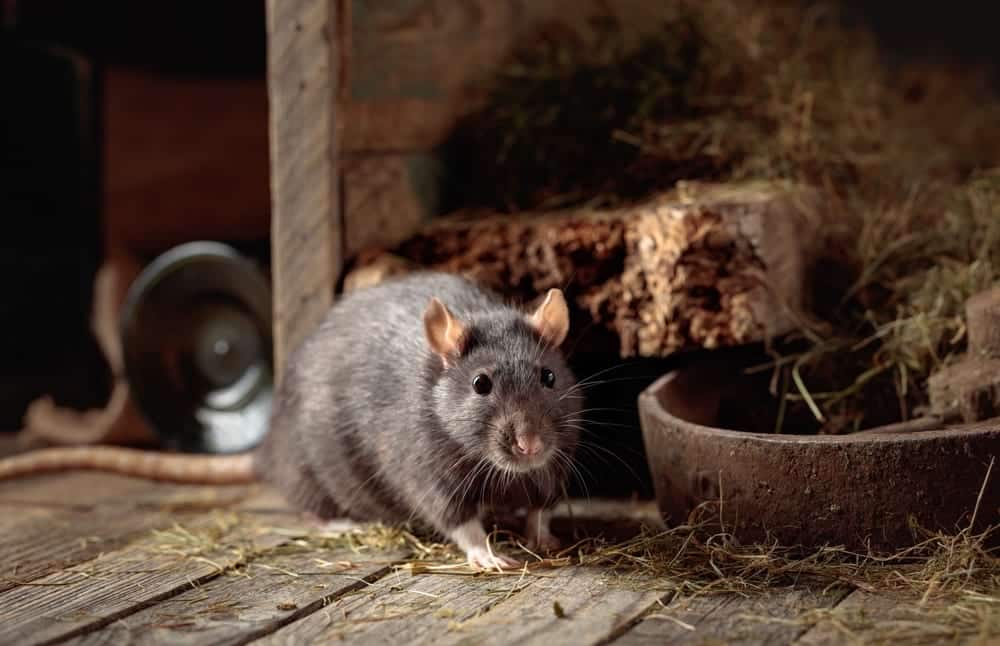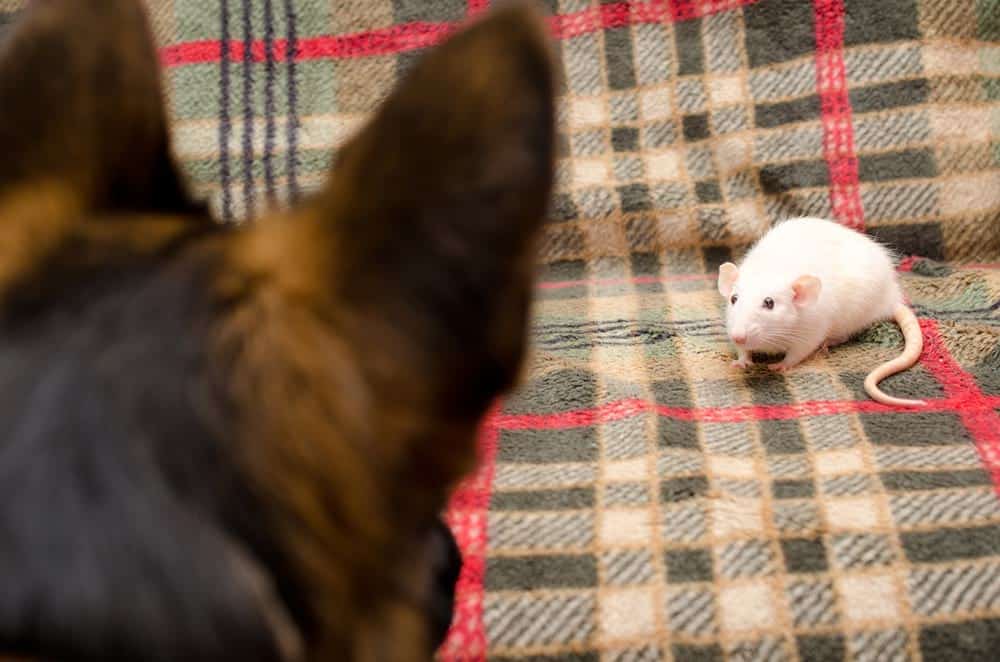Finding pests on your property is scary on a financial and visceral level…
After all, many people have a fear of rats (known as musophobia).
But when the time arrives to sell, do you need to declare even the smallest of rat invasions?
And if so, is this simply to prevent your buyers from screaming and jumping onto a stool?
In the blog below, we’ve answered these questions and more.

How common are rats in the UK?
The closest estimate is that there are around 250 million rats found anywhere in the UK.
According to some experts in recent years, there may be around 1.5 million rats in or around homes in the UK.
There could be up to ten or more rats in any given dwelling, though, so the number of properties affected is most likely in the hundred thousands.
Rats are found throughout major urban areas. This is because they can survive more easily due to the higher quantity of food on the streets.
Yet, there are millions of rats throughout the UK’s countryside, too.
How do I know if my house has rats?
As you would expect, most people discover rats in their property by seeing them.
This is especially common in households that have a cat, which might catch the rat and bring it to their owners.
But there are plenty of other signs that rats might be living in the house, too.
Rat droppings are a clear indicator that the pest has been in the area.

Rub or gnaw marks are a sign too – especially around floor and skirting boards.
If you are uncertain, call an expert. They can identify the presence of rats and ensure it isn’t a different pest.
Do you have to declare rats when selling a house?
Yes, you must disclose a history of pest infestations to the buyer of your property.
(It is one of several essential issues property sellers must declare when selling a house.)
Even if the issue has now been corrected, you should provide an in-depth summary of:
- What happened
- How the situation was fixed
- Whether any infestations have occurred since.
If the new owner of your property discovers that it is prone to rat infestations, but you did not disclose this, then you could be sued for damages.
What problems can rats cause to a property?
Rats will usually cause damage to your property if they are allowed to be there for long enough.
Chewing through electrical wires is very common, which can sometimes create a fire risk of these wires are left exposed. Rats have also been known to chew through wood fittings or lead pipes.
If rats die while in your property, then it can create a foul odour.
As you might expect, there are health risks involved with rat infestations. This is often a major concern for families with a young baby.
Does a previous rat infestation reduce property value?
Previous rat infestations can devalue your property in some scenarios. It depends on:
- How long ago it was
- How serious it was
- What preventative measures are (or are not) in place
- If the previous damage has been fixed or not.
If the rat infestation was small and occurred several years ago, then it might not make much difference to the value at all. This is especially true if preventative measures have been implemented.
It is worth getting an expert to compile a report on the problem that occurred, and how it was fixed.
Any preventative measures must be demonstrated to the new owners, so they can understand why it won’t happen again.
How to get rid of rats in your house

The quickest way to get rid of rats in your house is to hire an exterminator. This professional should handle any situation and eradicate them. It may involve several visits.
Some people place rat traps around the property, to catch any pests that are lurking around. These usually use poison and a trap to kill rats.
These may cost around £5 to £10 for each trap, depending on the complexity of the equipment.
In rural communities, specialist dogs are also often used to kill rats. These are usually—but not always—terriers trained to quickly seek out and kill rats.
How much does it cost to remove rats?
According to Checkatrade, the average rat exterminator cost is around £180.
This figure may rise higher depending on the quality of expert you hire, and how severe the infestation is.
As mentioned above, a set of four rat traps that you can setup yourself will cost around £20. If you want to buy more than four traps, this figure will go up.
Do you have to declare all types of pests when selling a house?
Yes. You have to declare all known information about the house when selling it – and this includes the presence of pests.
You should provide a clear summary (such as a written report) about what the problem is.
This should include the severity of the problem, how/if it was fixed, how long it has been going on for, and what experts have said about the matter.
There are many different types of pests in the UK that may occur, besides rats. See more on this below.
What happens if you don’t declare issues with rats?
If you don’t declare issues with rats on your property, a property survey will likely uncover them anyway.
If this happens, potential buyers will have strong leverage in negotiations on price reductions. Or they may pull out of the sale because you have lost their trust by not disclosing the issue.
What are the most common pests in the UK?

Rats and mice are two of the most common household pests in the UK.
European edible doormouses (glis glis) are often found in certain parts of the country – mostly the home counties.
Other common pests include:
- Moths
- Bed bugs
- Wasps
- Flies
- Ants
- Cockroaches.
















